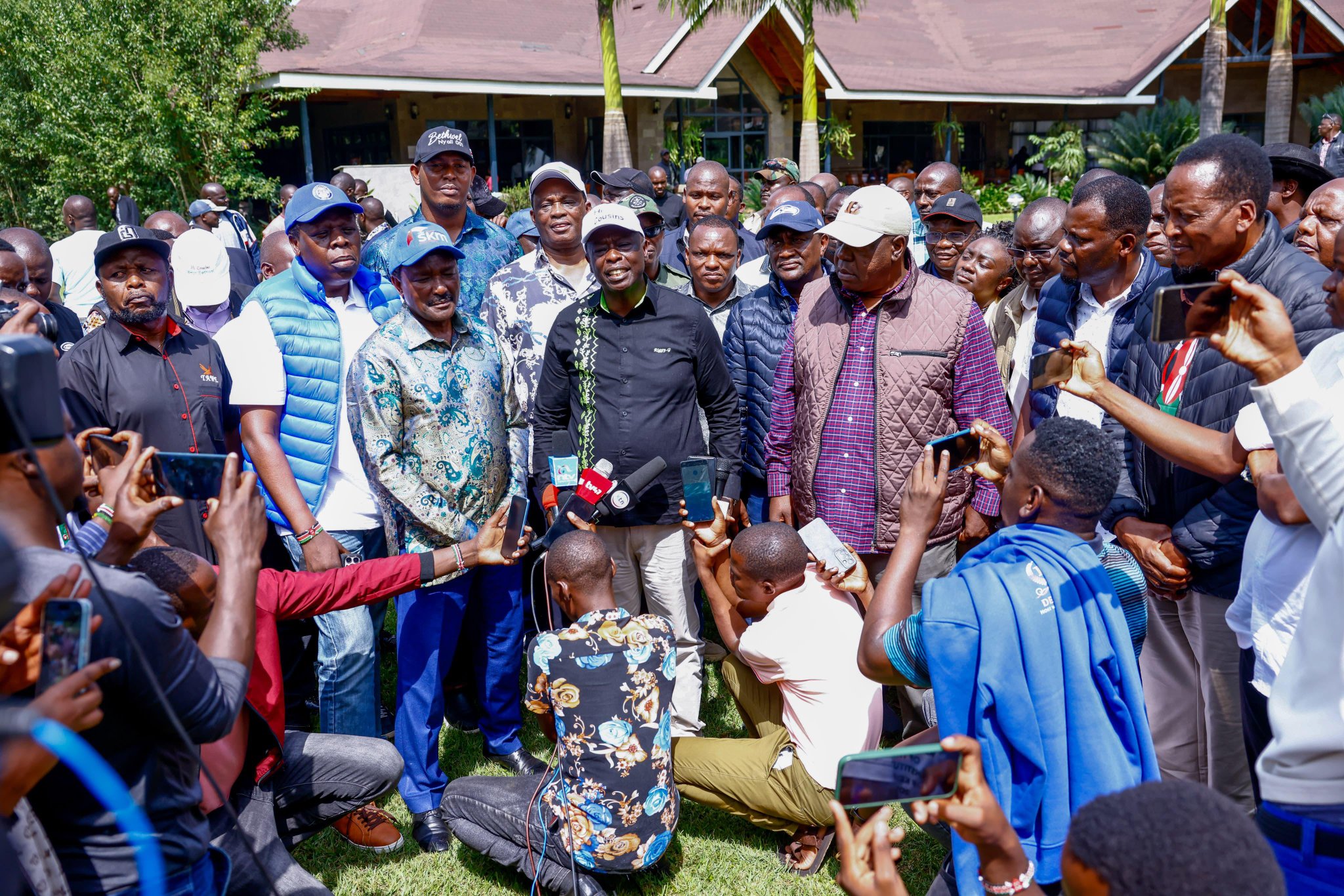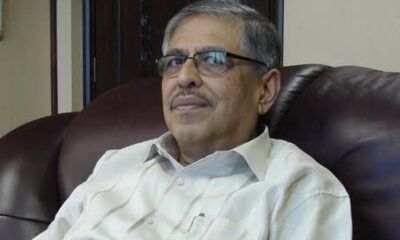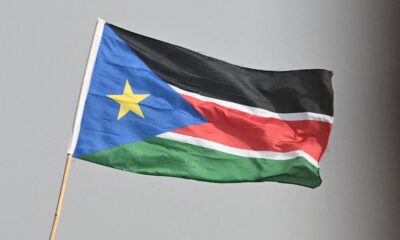Politics
List of Shame: Opposition Leaders Call on the Public to Boycott Businesses Owned by Persons Linked to Kenya Kwanza

Opposition coalition escalates campaign against Ruto administration, threatening economic warfare over alleged state violence
Kenya’s opposition leaders have launched an unprecedented economic warfare campaign against President William Ruto’s administration, calling for a nationwide boycott of all businesses linked to the Kenya Kwanza regime and its supporters.
The coalition, which includes prominent figures such as former Deputy President Rigathi Gachagua, Wiper leader Kalonzo Musyoka, and People’s Liberation Party leader Martha Karua, announced plans to publish a “list of shame” containing businesses they claim are affiliated with the current government.
Speaking at a press briefing at the SKM Command Centre in Karen, Nairobi, on Tuesday, the opposition leaders accused the Kenya Kwanza administration of orchestrating state-sponsored violence, ethnic persecution, and extrajudicial killings against Kenyans during recent anti-government protests.
“We therefore issue this call to action: Boycott all businesses, services, and institutions owned, operated, or publicly linked to this regime and its enablers,” declared former Trade Minister Dr. Mukhisa Kituyi, who read the statement on behalf of the opposition chiefs.
The boycott call represents a significant escalation in the opposition’s campaign against the Ruto administration, moving beyond traditional political protests to target the economic interests of government supporters.
The leaders announced they would crowdsource intelligence from the public to identify businesses with regime connections.
The opposition coalition has leveled grave accusations against the current administration, claiming systematic human rights violations during the recent Saba Saba protests.
They allege that rogue police officers and state-sponsored militias have been deployed to silence dissent through targeted killings, intimidation, looting, and destruction.
Among the incidents cited, the opposition pointed to an alleged attack on the Kenya Human Rights Commission during a press conference, where militia reportedly linked to the state roughed up participants without police intervention.
They also accused the government of deploying unmarked police vehicles to transport armed gangs to perceived opposition strongholds.
Most seriously, the United Opposition has accused President Ruto, the Interior Ministry, the National Police Service, and the Directorate of Criminal Investigations of committing crimes against humanity as defined under Article 7 of the Rome Statute of the International Criminal Court.
“This regime is no longer engaged in mere repression. It has graduated into full-blown persecution,” Kituyi stated. “These are not isolated incidents. They are systematic, targeted, and sanctioned at the highest levels.”
Justice Commission Launched
Central to the opposition’s strategy is the People’s Restoration Justice Commission (PRJC), launched on June 24, 2025.
The commission aims to document atrocities committed by the Kenya Kwanza administration and pursue private prosecutions in their quest for justice.
Makueni Senator Dan Maanzo, a close ally of Musyoka and PRJC member, emphasized the commission’s commitment to accountability: “After documenting all the incidents, we will provide the evidence to the Director of Public Prosecutions. If he fails to act, we will initiate private prosecutions.”
The commission’s secretariat and membership will be expanded from four to nine members, including journalists, retired judges, senior lawyers, and representatives from international human rights organizations and the Kenya National Commission on Human Rights.
Despite the opposition’s bold pronouncements, legal experts have raised questions about the commission’s effectiveness.
Constitutional lawyer Bob Mkangi noted that while the commission may be informed by Articles 1 and 2 of the Constitution, it lacks legal authority to summon witnesses.
“This is not a traditional commission of government. It therefore has no powers to summon anyone. Those who appear before it will do so voluntarily,” Mkangi explained.
Rarieda MP Otiende Amollo echoed these concerns, describing the PRJC as a people’s initiative not anchored in law.
“Since it’s not established by law, it has no coercive powers to compel or summon anyone,” he said, while acknowledging that pursuing justice is “not a bad thing.”
Three-Point Strategy
The opposition has outlined a comprehensive three-point strategy in response to what they term an “undeclared war on the Kenyan people”:
First, they will boycott all regime-linked businesses and institutions, with plans to release the controversial “list of shame” and encourage public participation in identifying affiliated businesses.
Second, they will shun all events and forums organized by pro-regime actors, including civil society organizations they view as legitimizing state violence.
Third, they will support citizen-led resistance and community-based mobilization efforts aimed at reclaiming democratic space.
“Change does not come by asking nicely. It is wrestled from the hands of those who thrive on fear and oppression,” the opposition statement declared.
The boycott call comes in the wake of the violent Saba Saba Day protests, which saw confrontations between demonstrators and police.
The opposition’s decision to target businesses economically represents a significant shift in Kenya’s political landscape, potentially affecting the livelihoods of ordinary Kenyans employed by targeted companies.
The campaign also signals a hardening of positions between the opposition and the Kenya Kwanza administration, with the coalition comparing Kenya’s current security situation to Haiti’s gang-controlled zones.
As the opposition prepares to release their “list of shame,” the success of their boycott campaign will likely depend on public support and the extent to which Kenyans are willing to participate in economic warfare against the government.
The development marks a turning point in Kenya’s political trajectory, with the opposition abandoning traditional dialogue channels in favor of direct economic pressure on the administration and its supporters.
Kenya Insights allows guest blogging, if you want to be published on Kenya’s most authoritative and accurate blog, have an expose, news TIPS, story angles, human interest stories, drop us an email on [email protected] or via Telegram
-

 Business2 weeks ago
Business2 weeks ago‘They’re Criminals,’ Popular Radio Presenter Rapcha The Sayantist Accuses Electric Bike Firm Spiro of Fraudulent Practices
-

 Business1 week ago
Business1 week agoIt’s a Carbon Trading Firm: What Kenyans Need to Know About Spiro’s Business Model Amid Damning Allegations of Predatory Lending
-

 Business1 week ago
Business1 week agoManager Flees Safaricom-Linked Sacco As Fears Of Investors Losing Savings Becomes Imminent
-

 News1 week ago
News1 week agoWoman Accused in High Defamation Blames AI As Case Exposes How Mombasa Billionaire Mohamed Jaffer Allegedly Sponsored Smear Campaign Linking Joho’s Family To Drug Trafficking
-

 Investigations2 weeks ago
Investigations2 weeks agoDisgraced Kuscco Boss Arnold Munene Moves To Gag Media After Expose Linking Him To Alleged Sh1.7 Billion Fraud
-

 Africa2 weeks ago
Africa2 weeks agoDisgraced Oil Trader Idris Taha Sneaks Into Juba as Empire Crumbles
-

 Investigations2 weeks ago
Investigations2 weeks agoFraud: How Sh235 Million Donor Cash For Nyamira Residents Was Embezzled Through Equity Bank Under Governor Nyaribo’s Watch
-

 Investigations1 week ago
Investigations1 week agoIntelligence Report Links Budding Politician James Mabele Magio To International Scammers Ring










